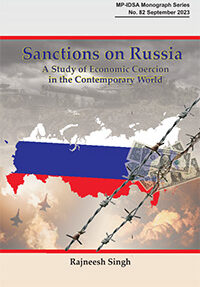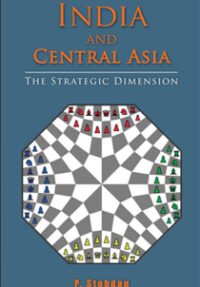Central Asia is the northern frontier of the Islamic world hitherto unaffected by fundamentalist wave. The Soviet developmental legacy still remains as a bulwark against potential extremist threats emanating from Pakistan and Afghanistan. However, behind the secular settings a major shift to a far more religious pattern of society is underway in the region.
Over the years, India has been taking renewed interest in enhancing its strategic presence in Central Asia, but it is yet to capitalise on various opportunities and potentials. India's full membership into the SCO now opens up an opportunity for a closer engagement with region but New Delhi still lacks a political-strategic clarity.
This book is an attempt to provide an overview of the political and strategic process at work in Central Asia since its emergence in 1991 and the intricate issues that impinge on India. The book is mostly about identifying critical points that are important for evolving a sound Central Asia policy in India.
The book does not in any sense purport to be an academic endeavour on Central Asian studies but merely a narrative, as well as, an analytical account and a result of author's own self-education and understanding gathered through extensive interactions with wide sections of people in Kyrgyzstan and Kazakhstan, especially with the think tanks, academia, government officials and the diplomatic community. The chapters in book are capsulated to provide analyses of the impinging issues that shape the dynamic interplay between Central Asia's internal polity and its external outlook. The book contains aspects critical for enhancing India's strategic presence in the region.








